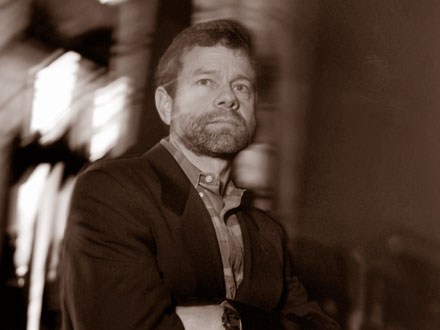AMNA NAWAZ: One conflict in the ongoing culture wars seems to suggest that science and religion cannot coexist peacefully.
Alan Lightman is a distinguished physicist and a novelist who teaches at MIT.
Tonight, he shares his Humble Opinion on how to make space for both facts and spirituality.
ALAN LIGHTMAN, Physicist: I have worked as a physicist for many years.
And I have always held a purely scientific view of the world.
And by that, I mean that the universe is made of matter and nothing more, that the universe is governed by a small number of laws, and that everything in the world eventually disintegrates and passes away.
And then, one summer night, I was out in the ocean in a small boat.
It was a dark, clear night, and the sky vibrated with stars.
I laid down in the boat and looked up.
After a few minutes, I found myself falling into infinity.

I lost all track of myself, and the vast expanse of time extending from the far distant past to the far distant future seemed compressed to a dot.
I felt connected to something eternal and ethereal, something beyond the material world.
In recent years, some scientists have attempted to use scientific arguments to question the existence of God.
I think these people are missing the point.
God, as conceived by most religions, lies outside time and space.
You can't use scientific arguments to either disprove or prove God.
And for the same reason, you can't use scientific arguments to analyze or understand the feeling I had that summer night when I lay down in the boat and looked up and felt part of something far larger than myself.
I'm still a scientist.
I still believe that the world is made of atoms and molecules and nothing more.
But I also believe in the power and validity of the spiritual experience.
Is it possible to be committed to both without feeling a contradiction?
I think so.
We understand that everything in the physical world is material, fated to pass away.
Yet we also long for the permanent, some grand and eternal unity.
We're idealists and we're realists.
We're dreamers and we're builders.
We experience and we do experiments.
We long for certainties, and yet we ourselves are full of the ambiguities of the Mona Lisa and the I Ching.
We ourselves are part of the yin-yang of the world.












